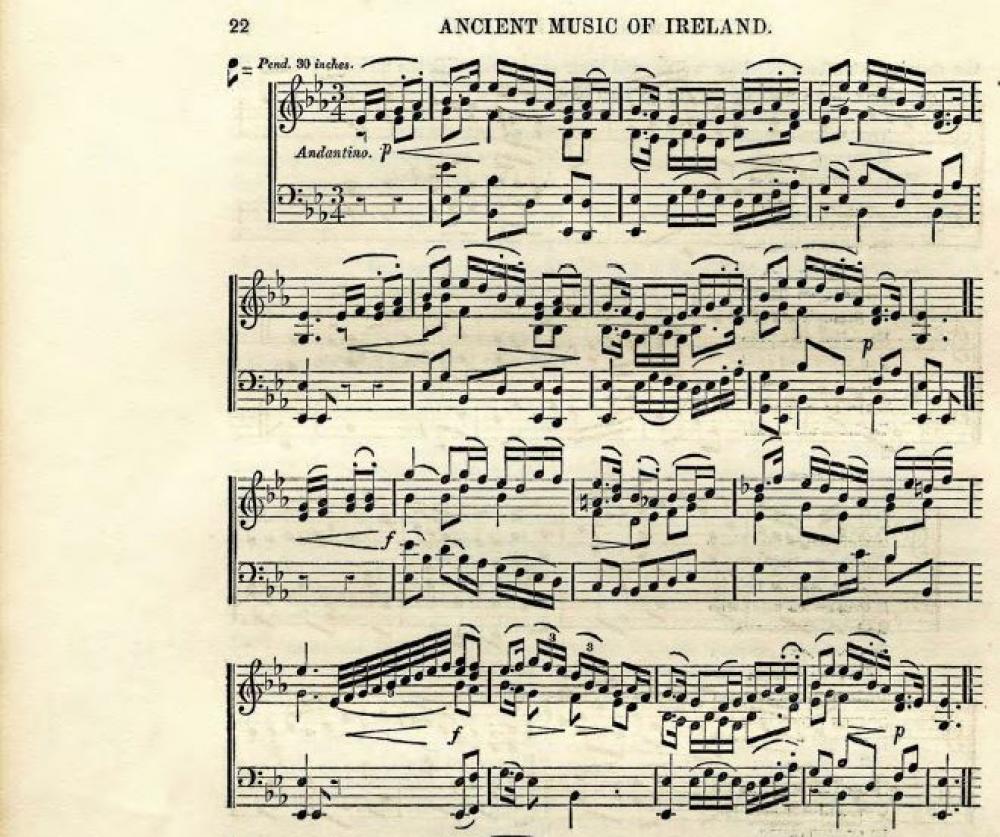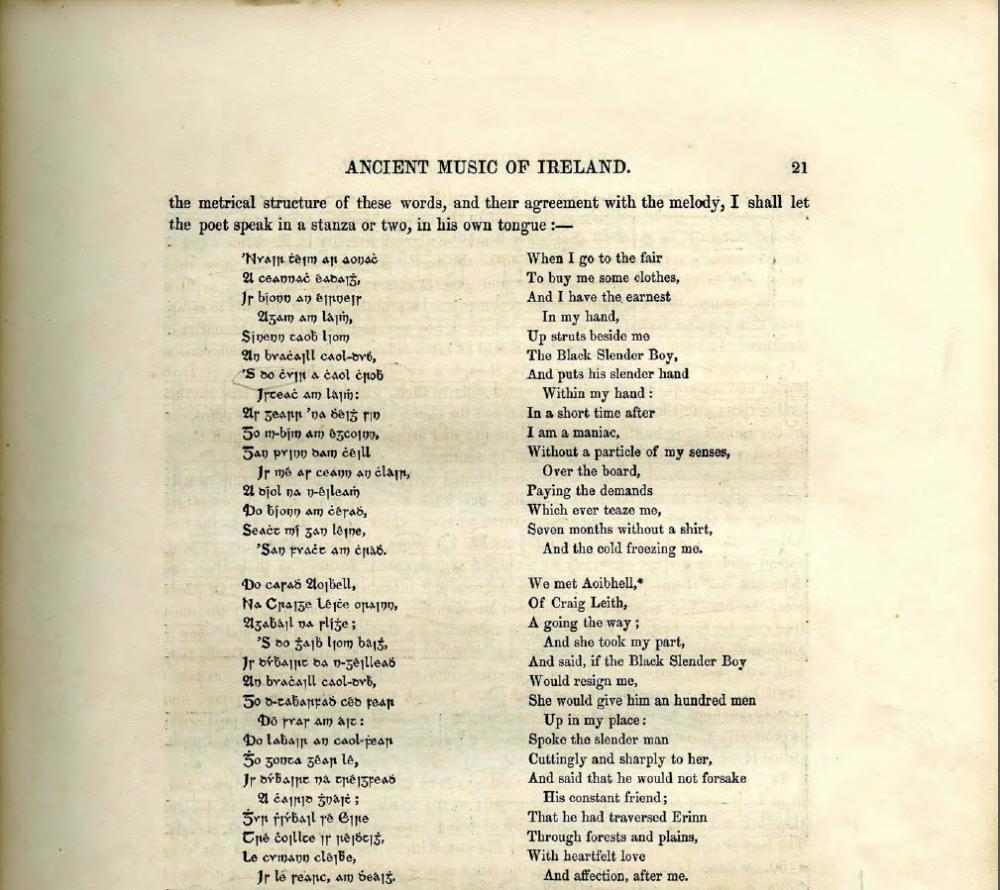An Buachaill Caol-Dubh
| TYPE | 3 - Complex Melody |
| TOPIC | Drinking |
| TUNE STRUCTURE | A8 B8 |
| VERSE STRUCTURE | 3v 8l |
| TIME SIGNATURE | 34 |
| KEY SIGNATURE | ♭♭♭ |
| TONAL CENTRE | E- |
| INCIPIT | GC'C'BGFEFDEDC |
| TEXT SOURCE | George Petrie, The Petrie Collection of the Ancient Music of Ireland (Dublin: M. H. Gill, 1855) p.126 |
| TUNE SOURCE | George Petrie, The Petrie Collection of the Ancient Music of Ireland (Dublin: M. H. Gill, 1855) p.22(a) |
| FIRST LINE | Nuair a théim ar aonach a' ceannach éadaigh |
| NOTATED INCIPIT | |
| The words were written to the older air, the original text of which is now lost. Petrie notated only two verses owing to the theme of the song (drinking) of which the collector obviously disapproved. In the text, the 'dark slender boy' refers to a whisley bottle. Donal O'Sullivan (1981) credits Sean Ó Seanacháin, a mid-eighteenth century Munster poet, with the composition of the words. O'Sullivan sourced another verse of the song from the publication An Lochlann (July 1918, 3), in which he states there are six further verses. O'Sullivan's additional verse reads: 'Sé an buachcaill caol dubh fada, féileach, Clisde, léigheanta, 's gur mhaith é a shnó, Do chlaoidh i bpéin mé 's do mhill i n-éag mé, Is d'fhag mé féinig ar beagán stóir. Dhon Fhrainnc dá dtéinn, nó go cuan Binn Eadain, Nó a' dul don léim sin go h-Inis Mór, Bíonn an séithleach im dhiadh ar saothar, Mara mbeinn féin uaidh ach uair de ló.' (The dark slender boy is tall and festive, Clever and learned, of comely mien; 'Tis he who has afflicted me and ruined me for life, And left me impoverished. If I were to go to France or the harbour of Howth, Or thence at bound to Inishmore, The wretch would come paiting after me, Were I to be away from him for a single hour in the day.') | |
Nuair teim ar aonachA ceannach éadaighIs bíonn an éirneirAgam am láimh,Sínenn taobh liomAn buachaill caol-dubh'S do huir a chaol chrobhIsteach am láim:Ar gearr 'na dhéigh sinGo m-bím am égcoinn,Gan prinn dam chéillIs mé ar ceann an chláirA díol na n-éileamhDo bhíonn am céradh,Seacht mí gan léine,'San fuacht am chrádh.Do casadh Aoibhell,Na Craige Léithe orainn,Agabháil na slighe;'S do ghaibh liom báigh,Is dúbhairt da n-géilleadhAn buachaill caol-dubh,Go d-tabharfadh céd fearGho gonta géar lé,Is dubhairt ná tréigfeadhA chairid ghnáith;Ghur shiubhail sé EireTré choillte is réidhtigh,Le cumann cléibhe,Is le searc, am dheáigh.
An Buachcaill caol-dubhWhen I go to the fairTo buy me some clothes,And I have the earnestIn my hand,Up struts beside meThe Black Slender Boy,And puts his slender handwithin my hand:In a short time afterI am a maniac,Without a particle of my senses,Over the board,Paying demandsWhich ever tease me,Seven months wihtout a shirt,and the cold freezing me.We met AoibhellOg Creig LeithA going the way;And she took my part,And said, and if the Black Slender BoyWould resign me,She would give him an hundred menUp in my place:Spoke the slender manCuttingly and sharply to her,And said that he would not forsakeHis constant friend;That he had traversed ErinnThrough forests and plains,With heartfelt loveAnd affection, after me.Translation by George Petrie, The Ancient Music of Ireland (Dublin: M. H. Gill, 1855) p. 21.


